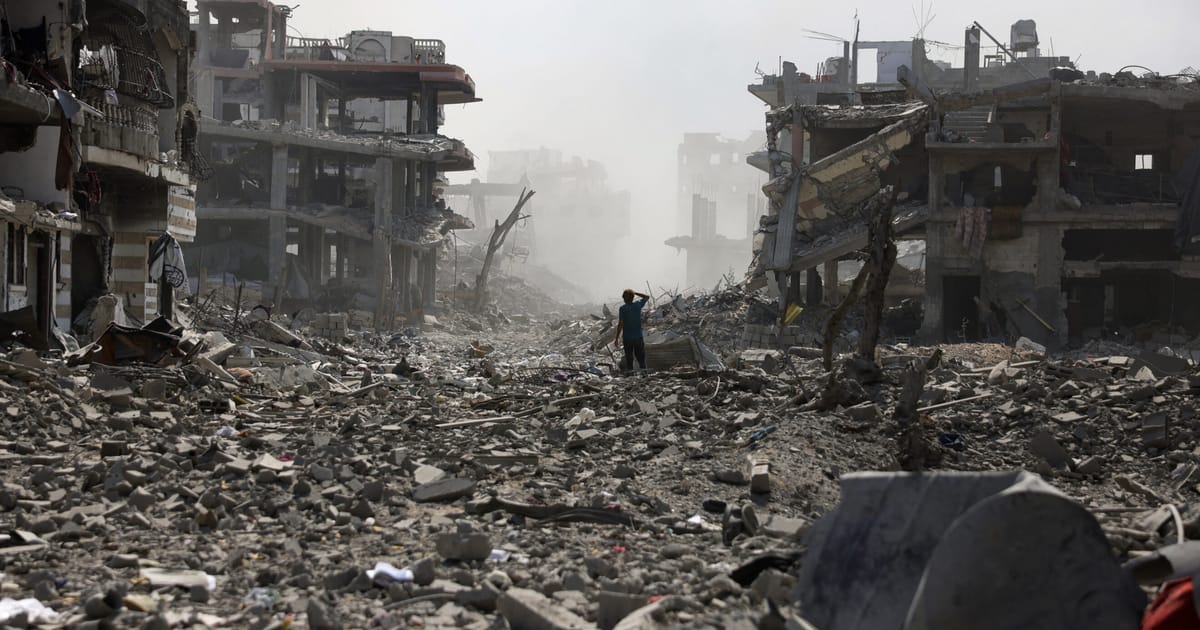

The past few days have ushered in a series of significant global events that underscore the complexities of international relations and geopolitical dynamics. From diplomatic exchanges to military maneuvers, nations around the world are navigating challenging scenarios with caution and assertiveness.
In a recent development, the European Commission has addressed remarks made by Vice President Teresa Ribera suggesting that Israel’s actions in Gaza might constitute genocide, a statement the Commission has refrained from endorsing. A chief spokesperson emphasized that such definitions are within the jurisdiction of legal courts, not the Commission, reflecting the body’s preference for prudent and measured discourse over sensitive international matters.
Meanwhile, in the Caribbean, the Trump administration has bolstered its military presence by dispatching ten F-35 fighter jets to Puerto Rico. This strategic move aims to intensify U.S. operations against drug cartels in the region, following a U.S. missile strike on a vessel suspected of transporting Venezuelan drug traffickers. The Secretary of State, Marco Rubio, highlighted the administration’s commitment to sustain such military strikes as necessary actions within their anti-drug cartel efforts.
Simultaneously, reports have surfaced regarding a 2019 U.S. Navy Seal mission in North Korea, during which the team, allegedly authorized by then-President Donald Trump, inadvertently resulted in civilian casualties. The mission aimed to plant a listening device amidst delicate negotiations with North Korean leadership. This revelation, from the New York Times, adds another layer of complexity to the ongoing discourse surrounding covert military operations and their broader implications on international diplomacy.
In another part of Asia, Taiwan has voiced its objections to China’s oil and gas exploration activities within its exclusive economic zone. The Taiwanese government has called for an immediate cessation of these operations, citing violations of international law. This development underscores ongoing tensions over resource-rich zones, including the strategically significant Pratas Islands, and highlights Taiwan’s steadfast approach in asserting its territorial rights.
Across Europe, NATO relations are being tested as Russian President Vladimir Putin has declared that any Western military presence in Ukraine would be regarded as legitimate targets for Russian forces. Putin’s statement comes in response to a French-led initiative aimed at providing postwar support for Ukraine, including potential troop deployments, which Moscow perceives as a transgression of its red lines regarding NATO’s involvement in the region.
Economic tensions are also prominent as the European Union has imposed a significant fine on Google, demanding the divestiture of parts of its advertising business. In retaliation, former U.S. President Donald Trump has threatened to impose tariffs on European goods, signaling a contentious phase in transatlantic economic relations while underscoring the intricate balance between regulatory actions and international trade policies.
As these stories unfold, they collectively depict a global landscape characterized by strategic disputes, military concerns, and economic negotiations. The careful navigation of these issues requires not only diplomatic acumen but also a commitment to peaceful resolutions and mutual respect among nations. The international community continues to watch closely, as the outcomes of these events have the potential to reshape alliances and influence future policy directions. Yet, hope persists that through cooperation and dialogue, nations can find pathways toward stability and prosperity.
Source: {link}
